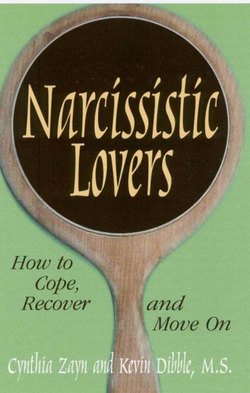Читать книгу Narcissistic Lovers - Cynthia Zayn - Страница 5
На сайте Литреса книга снята с продажи.
ОглавлениеIntroduction
The beginning of a toxic relationship can sometimes appear so alluring and promising. The destructive features of the relationship are at first elusive, and seem indefinable. Many people blame themselves in an attempt to resolve the conflict, or may question the reality of their perceptions. In many cases, by the time the “poison” of the relationship is finally detected, emotional damage has already been done, and all that remains is the pain, self-doubt and confusion.
It can be hard work to recover from such a relationship without feeling permanently injured and disconnected from one’s true “self.” An even greater challenge is to emerge from such a painful experience with increased clarity, personal power and hope. To achieve this level of healing and to move past mere “survival first” requires, very simply, a clear picture of what happened, and the major underlying causes.
Many victims of injurious and emotionally abusive relationships were unwittingly victimized by someone with Narcissistic Personality Disorder, an often misunderstood psychiatric condition that is characterized by, among other things, deceit, manipulation and complete and utter self absorption. If you feel you may have been involved with someone with Narcissistic Personality Disorder and you are struggling to find an explanation for what happened to you, know that this very motivation can be the source of your healing. For if you search and discover the true nature of a Narcissistic “relationship” the understanding and clarity you can achieve will be truly liberating.
Many readers would benefit from going through therapy as they seek to recover and redefine their lives. This can be a very difficult process to face alone, and an objective therapist can help sort out and identify forces such as family dynamics, childhood experiences, and intimacy issues that influence one’s perceptions, feelings and choices. Further, many victims of Narcissists have endured emotional and/or physical abuse, making the impact of the relationship even more damaging, and the need for therapy more certain. This book is not meant to be a substitute for therapy, and the authors are not mental health professionals.
Since this book was written for victims of Narcissists, an “academic” writing style is avoided. The goal is to lead the reader on a personal journey that is more than a summary of psychological theory, for true healing of any type requires more of the reader than “intellectualizing” the experience. A personal tone is emphasized not only to enhance the book’s readability, but to create a “writer/reader connection” that is based on a sincere hope for personal growth and healing.
Many who have been hurt in a relationship that turned toxic without warning may have heard the terms “Narcissist,” or “Narcissistic,” but may not know that they were in a relationship with a Narcissist. Confusing the issue, the terms “Narcissist,” “Narcissistic” and “Narcissism” have been used to describe a wide variety of personality characteristics ranging from the phrase, “a healthy Narcissism” to full-blown “Narcissistic Personality Disorder.” In fact, it has been suggested by Alice Miller in The Drama of the Gifted Child that the term Narcissism has been so commonly used to describe such diverse meanings, “that it is difficult today to rescue it for scientific use.” Nevertheless, this book attempts to describe, in laymen’s terms, the complex forces at work that doom nearly all relationships with a Narcissist. In the process, a variety of terms are used that are not the authors’ own, such as the “False Self ” (Winnicott), or “Narcissized,” (describing the experience of being victimized by a Narcissist), or “supply” (a Narcissist’s “fuel” for existence). These terms are found in scholarly journals, books, or even internet discussion sites, and are commonly used to describe the condition or dynamics of Narcissism.
Though no one truly knows the ratio of male Narcissists to female Narcissists, it is generally agreed to be somewhat more prevalent with males. Nevertheless, there is no shortage of Narcissists who are women, so throughout this book, gender pronouns will be used interchangeably to reflect this fact.
